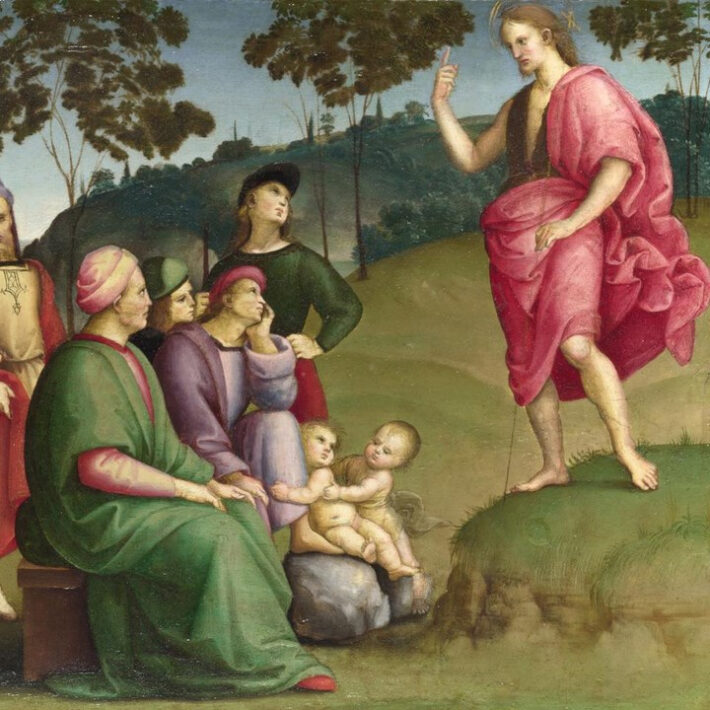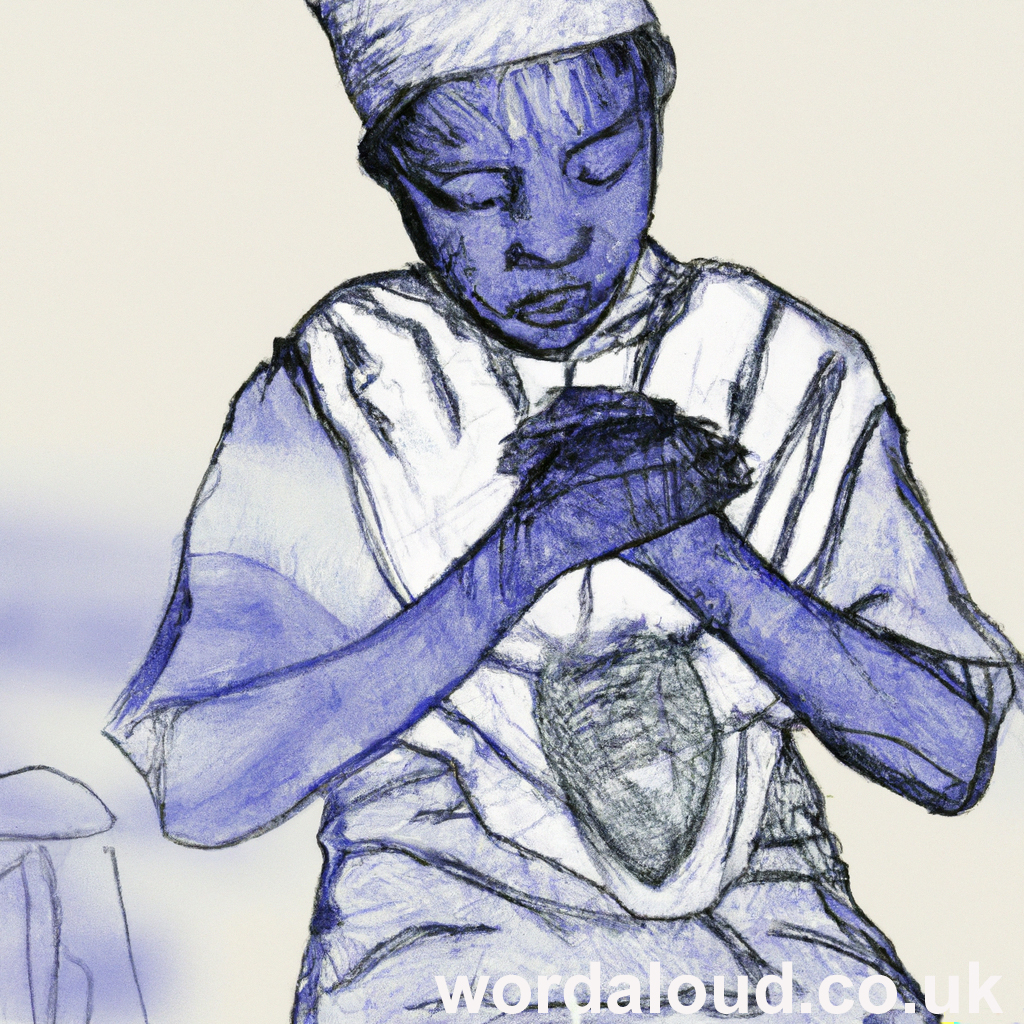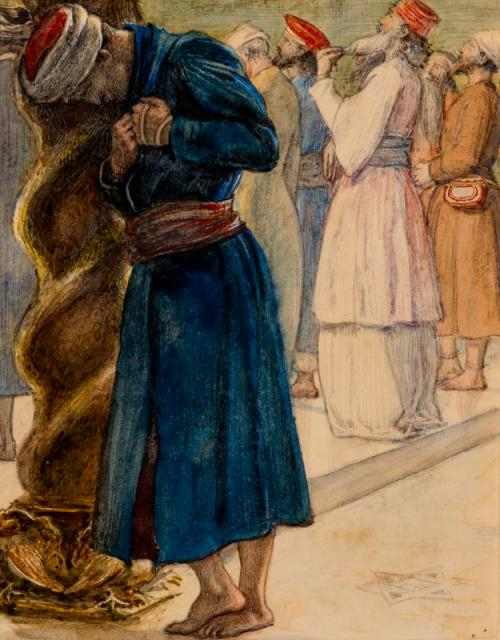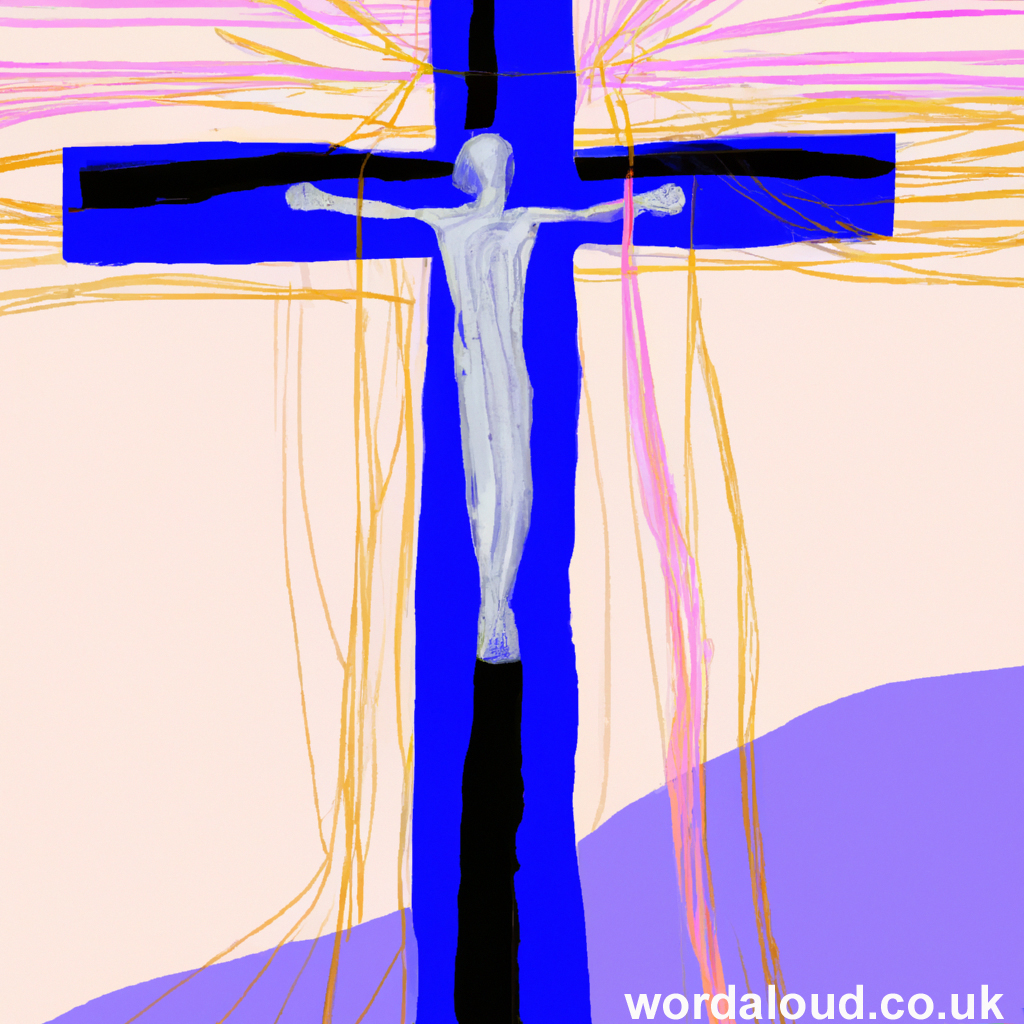John 1: 6-8, 19-28
6 ¶ There was a man sent from God, whose name was John.
7 The same came for a witness, to bear witness of the Light, that all men through him might believe.
8 He was not that Light, but was sent to bear witness of that Light.
19 ¶ And this is the record of John, when the Jews sent priests and Levites from Jerusalem to ask him, Who art thou?
20 And he confessed, and denied not; but confessed, I am not the Christ.
21 And they asked him, What then? Art thou Elias? And he saith, I am not. Art thou that prophet? And he answered, No.
22 Then said they unto him, Who art thou? that we may give an answer to them that sent us. What sayest thou of thyself?
23 He said, I am the voice of one crying in the wilderness, Make straight the way of the Lord, as said the prophet Esaias.
24 And they which were sent were of the Pharisees.
25 And they asked him, and said unto him, Why baptizest thou then, if thou be not that Christ, nor Elias, neither that prophet?
26 John answered them, saying, I baptize with water: but there standeth one among you, whom ye know not;
27 He it is, who coming after me is preferred before me, whose shoe’s latchet I am not worthy to unloose.
28 These things were done in Bethabara beyond Jordan, where John was baptizing.
The message of this Sunday’s Gospel is so clear and so perfect. John has come to prepare the way of the Lord. He is not the Lord; he is come to prepare his way, the way of Christ.
The opening of John’s Gospel may be heard this week as a beautiful restatement from a new point of view of the message of the coming of the Lord and the beginning of Christ’s ministry. We hear again that John is not himself the Messiah. We hear that he has such a great and wonderful following of people awaiting the Messiah. We know that these, the Jewish people, must have been so very anxious in their expectation of the Messiah. We hear additionally of those entrenched and conservative forces who will seek to destroy Christ, and so paradoxically play their part in bringing about our salvation. And John like Mark may indeed seem to be recounting the events of Christ’s life as it were as if seeing Christ’s whole ministry through the lens of his crucifixion and resurrection.
The perspectives of Mark and John are, though, quite different, and beautifully complementary. Perhaps it is fair to say that, while Mark races toward the crucifixion in a linear narrative time frame, with John Christ’s essential transcendence is presented to the listener as it were from the first word.
We are truly privileged to think of how we as Christians look to the coming of our Lord Jesus Christ with great confidence: that we know our Lord is with us; we know that we have this great light, the light of Christ, to carry with us through our lives. The Word has been given to us. The Word is with us. (Let us watch!)
And so much of this Gospel reading, and also especially of the reading from Isaiah, must resonate with us today. We are in the wilderness. We walk at times in such darkness. It is with such eager expectation that we look to our Lord.
As Advent continues, we look to make ourselves fitting to receive Jesus. We wish to clothe ourselves, metaphorically speaking, in a way that is fitting to receive our Lord, to become an appropriate bride for the bridegroom. In a sense, we imagine ourselves to be in the position of those people who once sought reconciliation through the baptism of John. So we acknowledge our sins and seek reconciliation. It is a most perfect time now to confess our human frailties to God and seek forgiveness. It is a most perfect time also to recall our baptism and once more to renew our baptismal promises.
John’s Gospel is a tremendous text. It is steeped both in the Jewish world and also in the philosophy of the Gentiles, of those Jesus came to heal who prior to his incarnation lived beyond the faith in God. Often employing the terminology and the philosophical traditions of the Greek people, it is a great reaching out to all people. Isaiah’s prophecies have been fulfilled in ways which perhaps Isaiah could have hardly imagined.
John’s Gospel is often seen as being quite abstract, but we have such wonderful specific details here to help us to know that this Gospel is truly a witness of Christ. Read or listened to closely, we hear again John’s message, especially when he is challenged by the Pharisees and the scribes, by Jewish orthodoxy, by the authorities associated with the Jerusalem Temple, that he is merely a vehicle preparing us all for the coming of God the Son.
John did not claim to be other than what he was. Let us now keep John’s message with us as we celebrate Advent. Let us remember our baptism, pray that the Holy Spirit may be with us, confess our sins and seek reconciliation and accept Christ’s forgiveness. We are only what we are also. We cannot really be other than what we are, but what we are, when we are true to ourselves, is wonderful. We may be confident that Christ will, for all our limitations, live with us all.
‘It was not enough for God to give us his Son merely to point out the way. He made the Son himself the way, so that you might journey with him as your guide, as he walks in his own way.’ St Augustine








